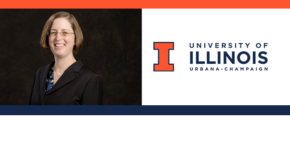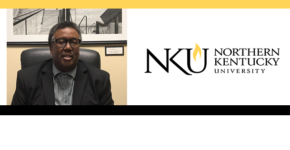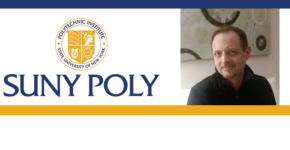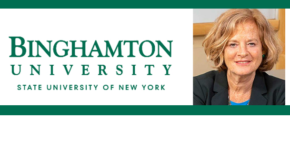Tag: education
-

Jennifer Delaney, University of Illinois Urbana-Champaign – State Spending for Higher Education and Cuts
How long does it take to restore state spending on higher education? Jennifer Delaney, professor of higher education in the department of education policy, organization and leadership at the University of Illinois Urbana-Champaign, examines the history. Jennifer A. Delaney is a Professor of Higher Education in the Department of Education Policy, Organization and Leadership at…
-

Eric Jackson, Northern Kentucky University – A History of Black History
The field of Black Studies has a lot more to teach us. Eric Jackson, professor of history and associate dean of the college of arts and sciences at Northern Kentucky University, considers the history. Dr. Eric Jackson, professor of history and associate dean of the College of Arts & Sciences, Northern Kentucky University. He earned…
-

Royel Johnson, University of Southern California – DEI and Climate Change
The climate on college campuses for students can be challenging. Royel Johnson, tenured professor in the Rossier School of Education at University of Southern California, asks students how they’re doing dealing with racism at their institutions. Dr. Royel M. Johnson is Associate Professor and Chair in the Rossier School of Education at the University of Southern California (USC).…
-

Lisa Donovan, Massachusetts College of Liberal Arts – Studying the Arts and Deep Learning
Studying the arts can lead to deep, rigorous learning. Lisa Donovan, professor of arts management at the Massachusetts College of Liberal Arts, explores how arts can help the cause of academic rigor. Dr. Lisa Donovan is a professor in the Fine and Performing Arts Department at the Massachusetts College of Liberal Arts. Previously she served…
-

Robert Edgell, SUNY Polytechnic Institute – Creative Challenges and the University Reimagined
On SUNY Polytechnic Institute Week: Is it time to reimagine our educational institutions? Robert Edgell, professor of technology management, suggests a creative approach. Dr. Edgell is a Professor of Technology Management in the College of Business at SUNY Polytechnic Institute where he received the Chancellor’s Award for Excellence in Teaching. He has been a Visiting…
-

Chelda Smith Kondo, University of St. Thomas – Pedagogy of Humanization
On University of St. Thomas Week: Who you are influences how you teach. Chelda Smith Kondo, assistant professor of education, explores the effects. Chelda Smith Kondo, Ph.D., (she/her/hers) identifies as a cisgender, able-bodied, Americanized Haitian woman. Chelda is an Associate Professor of Education specializing in Culturally Sustaining Pedagogy at the University of St. Thomas (UST).…
-

Ramon Goings, University of Maryland Baltimore County – There’s No Dissertation Like a Done Dissertation
On University of Maryland Baltimore County Week: Dissertations can be tough to finish. Ramon Goings, associate professor in the language, literacy, and culture doctoral program, outlines the process to getting students across the finish line. Dr. Goings’ research interests are centered on exploring the academic and social experiences of gifted/high-achieving Black males PK-PhD, diversifying the…
-

Daniel Bagner, Florida International University – Telehealth Programs Benefit Young Children with Developmental Delay
On Florida International University Week: Telehealth has brought a new option to families who need it. Daniel Bagner, professor of psychology and director of clinical training, explores the benefit for those whose children need an extra hand. Dr. Daniel Bagner is a Professor of Psychology and Director of Clinical Training at Florida International University (FIU).…


